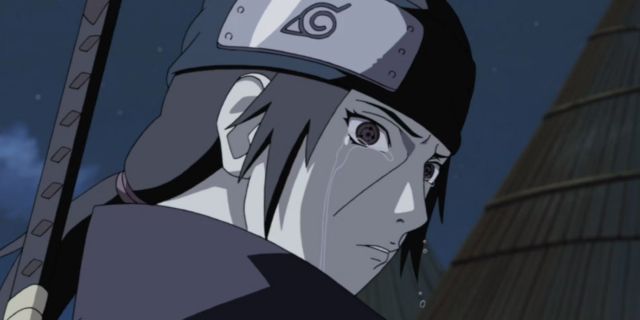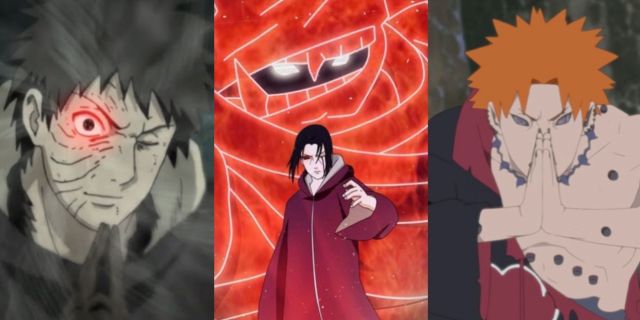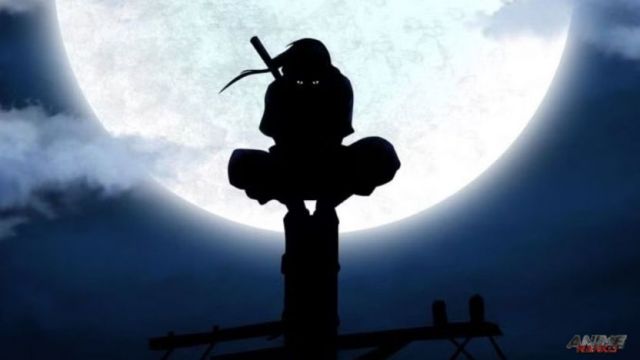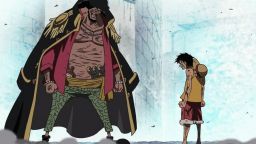Key Points:
- Itachi Uchiha's backstory in the Naruto series is a pivotal element that adds depth and complexity to his character.
- Itachi's story is not unique in terms of tragic backstories in Naruto, as several other characters have faced profound suffering and moral dilemmas.
- However, Itachi's narrative stands out due to the immense emotional turmoil he endures and the heavy burden of his choices, including the massacre of his own clan.
- Itachi's sacrifice and the guilt he carries contribute to making him one of the most enigmatic and emotionally charged characters in the Naruto series.
The Naruto series is celebrated for its richly developed characters and their emotionally charged backstories. While many characters in the series have faced tragic circumstances, Itachi Uchiha's narrative is particularly heart-wrenching. His life story is marked by profound suffering and intricate moral dilemmas, contributing to his status as one of the most enigmatic and emotionally charged characters in the series.
At the core of Itachi's past is his agonizing decision to annihilate his own clan in order to safeguard Konoha. This fateful choice, driven by a sense of duty and responsibility, forever haunted him and had far-reaching consequences for those in his orbit. The weight of his actions, combined with his enduring guilt and inner turmoil, make Itachi's backstory a compelling and unforgettable part of the Naruto narrative.
Itachi's Ultimate Sacrifice

Itachi Uchiha's backstory in the Naruto series is a poignant and complex narrative that adds depth to his character. Born into the renowned Uchiha clan, known for their exceptional abilities, particularly the Sharingan, Itachi exhibited prodigious talent in ninjutsu from a young age. However, his clan faced discrimination and distrust from the village, leading to growing tensions between the Uchiha and the village leadership.
Caught in the midst of this escalating conflict, Itachi faced a heart-wrenching decision. To prevent a full-scale war and protect the village he loved, he made the agonizing choice to eliminate his entire clan, including his parents and fellow Uchiha members. This act, done under the guise of betraying the village, earned Itachi infamy and widespread hatred.
Notably, Itachi spared the life of his younger brother, Sasuke, with the intention that Sasuke would one day seek revenge against him. Itachi believed this path would strengthen Sasuke and shield him from the manipulations of the Uchiha clan and the village's enemies. However, Itachi's actions concealed a deeper purpose: to safeguard the village, his brother, and the secrets of the Uchiha clan.
Itachi bore a heavy burden of guilt, sorrow, and emotional turmoil due to the profound sacrifices he made and the pain he inflicted upon himself and his loved ones. His tragic backstory delves into themes of sacrifice, duty, and the lengths one is willing to go to protect what they hold dear. It adds layers of complexity to Itachi's character and sets in motion Sasuke's journey of vengeance and redemption, a central narrative thread throughout the Naruto series.
Who Had It Worst Among The Characters?

In the Naruto series, tragic backstories are a recurring theme that adds depth to the characters, and each character's story is unique and emotionally charged. Tragedy is often intertwined with personal experiences, suffering, and the emotional turmoil that these characters have endured. While there are many characters in the series with poignant tales, a few are often recognized for the particularly tragic nature of their stories.
One such character is Nagato, whose life is marked by immense loss and suffering. He witnessed the death of his parents during a war and the loss of his friend, Yahiko, with whom he endured the hardships of growing up as orphans in a war-torn country. These losses deeply impacted Nagato and shaped his perspective on suffering and the cycle of hatred. His experiences ultimately led to his transformation into Pain, the leader of the Akatsuki.
Obito is another character whose tragic backstory is marked by blaming the world for the suffering he witnessed. After the crushing of his dream to become Hokage by his paralyzed body, Obito's sorrow deepened when he witnessed the death of his teammate and love interest, Rin Nohara. This event fueled his anger and desire for revenge, as he held the world responsible for her tragic fate. Many characters with tragic backstories in the series often set themselves on a dark path to seek revenge, with feelings of anger and hatred as their ultimate goals to cope with the abuse they experienced. However, characters like Sasuke, Sasori, Gaara, and Konan similarly struggle with anger and hatred as they seek to quench their thirst for vengeance.
In contrast, characters like Naruto and Kakashi, who also have tragic pasts, refuse to be defined solely by their suffering. They channel their pain into motivations for positive change and growth.
Itachi's story, on the other hand, is filled with sorrow, sacrifice, and the weight of immense burdens. Itachi carried the guilt and emotional turmoil of the massacre of his clan, enduring isolation and hatred from those around him. His true motives remained hidden from many characters in the series until later, adding complexity to his tragic narrative. Itachi foreshadowed the pain and loneliness that would haunt him for the rest of his life, yet he followed through with his plan. While some characters like Obito and Nagato found redemption before their deaths, Itachi did not have that chance as he met his end at the hands of his brother, Sasuke.
Itachi's story is particularly poignant and emotionally impactful in the Naruto series due to the depth of his suffering, moral dilemmas, and the ultimate tragedy of his life. Although there are other characters in the series with equally tragic backstories, Itachi stands out because of the immense emotional turmoil he endured, the heavy burden of his choices, and the internal struggle that defined his life.






